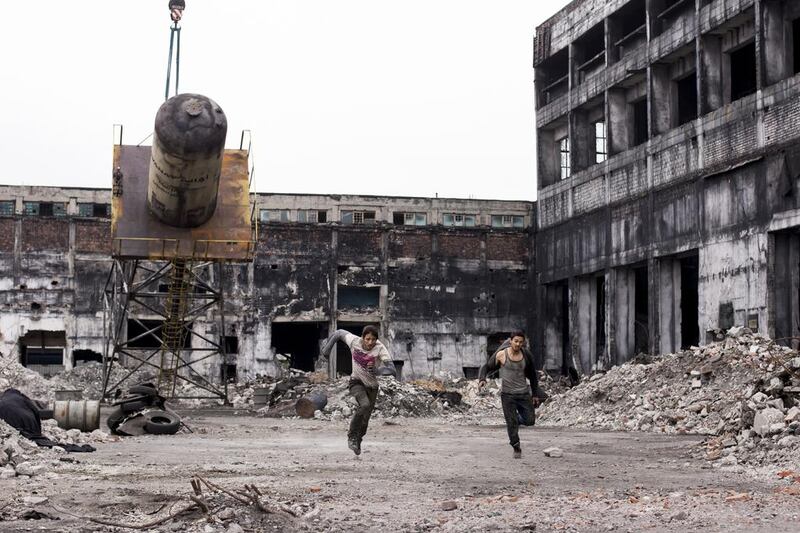There was a strange sense of calm over London's Leicester Square on Saturday night, as Ali F Mostafa's eagerly anticipated film The Worthy received its world premiere at Vue Cinemas.
The screening was packed, filled with eager viewers, despite the absence of any glitzy or overblown incentives.
There was no red carpet, no fireworks and no bluster. In many ways it was a most “un-UAE-like” premiere – but the team behind the film had seemingly decided to let the work speak for itself.
Judging by the applause it received at the end, and a captivated audience who remained rooted to their seats until the final credits rolled, the decision was justified and the movie spoke loudly – in many tongues.
If last year's thriller Zinzana – directed by Majid Al Ansari – set out a stall to show that Emirati cinema no longer needs be solely concerned with the country's heritage and tradition, and an increasingly predictable narrative about the struggle to reconcile these with 21st-century life, then The Worthy took that stall, tore it down and built in its place a veritable shopping mall.
The Worthy tells the story of a ragtag band of survivors in a water-deprived, post-apocalyptic world sheltering in a former airplane factory, whose world descends even further into chaos and danger when pair of strangers arrive at the gates.
The film does not pull its punches. It is violent, gruesome, and largely nihilistic, aside from faith in the human will to survive against the odds.
In short, it avoids the clichés inherent in the traditional notion of “Emirati cinema” just as emphatically as the characters try to avoid any threats to their meagre but predictable existence – and the audience at this world premiere seemed all the more grateful for that fact.
There is intrigue, mystery and a sense of utter moral ambiguity as to who are the good guys and who are the baddies. Plus, a whole lot of brutal violence that makes the likes of Eli Roth's Hostel seem like a tea party.
Perhaps most significantly, though, the film is unmistakably Arabic.
Even though it was filmed largely in Eastern Europe – due to the lack of post-apocalyptic former airplane factories in the UAE (perhaps something twofour54 might like to consider for potential future location shoots) – each shot, each line of dialogue, each desperate plea for survival, unmistakably emanates from this region.
It is hard to believe that the script originated in Hollywood – from the creators of horror smash The Conjuring – because it has been adapted, edited, whittled and repurposed into an entirely Middle Eastern experience, albeit one that most of us wouldn't want to go through outside the comfort of a cinema seat.
It is hard to view this film without placing it in the context of last year's Zinzana – another genre film that defied expectations of Emirati cinema. Both have broken the mould. Both are perhaps more brutal than we might have expected.
And both of them have something to say beyond their plot lines – that Emirati cinema is now capable of going places you do not expect it to – and it can be a surprisingly entertaining place when you get there.
cnewbould@thenational.ae





